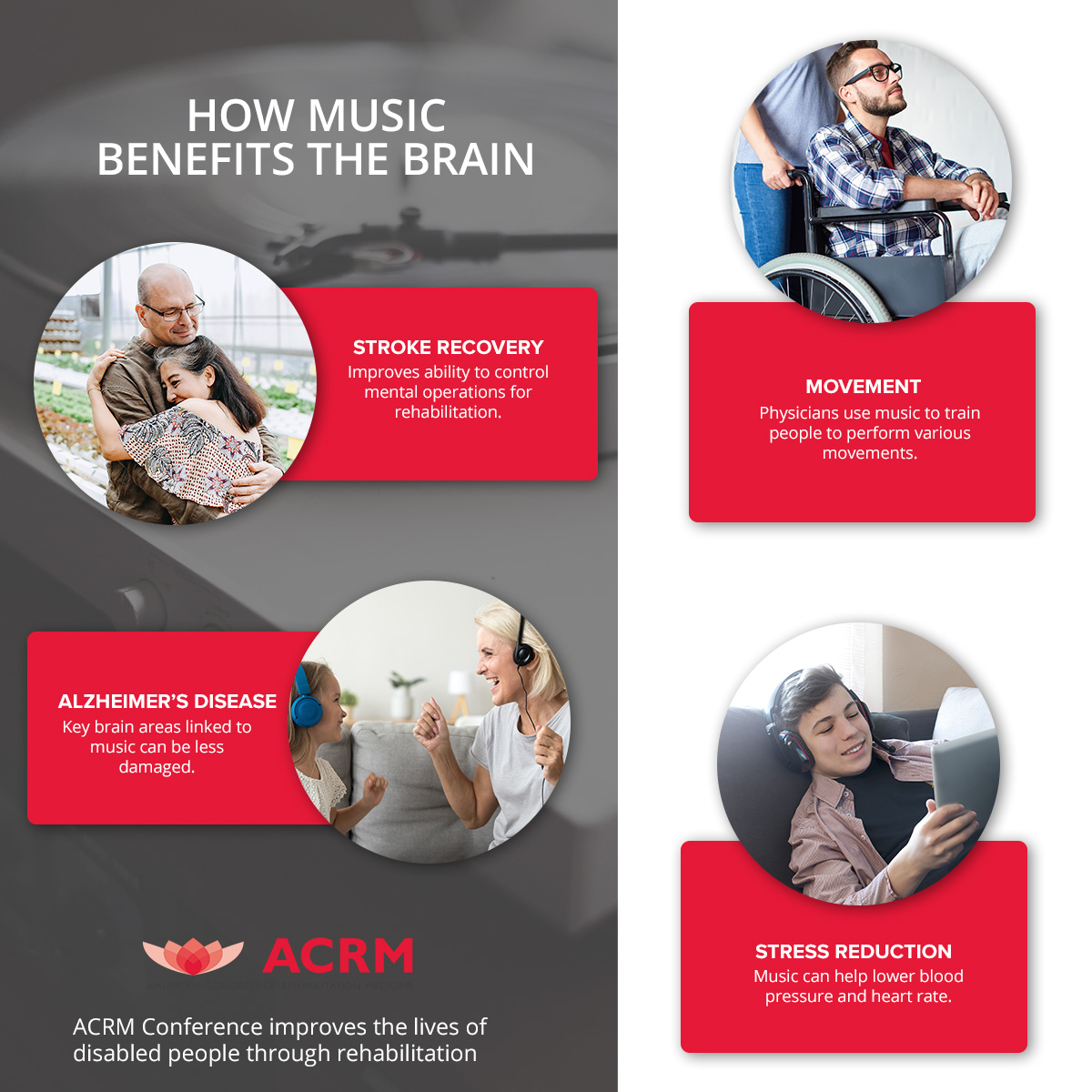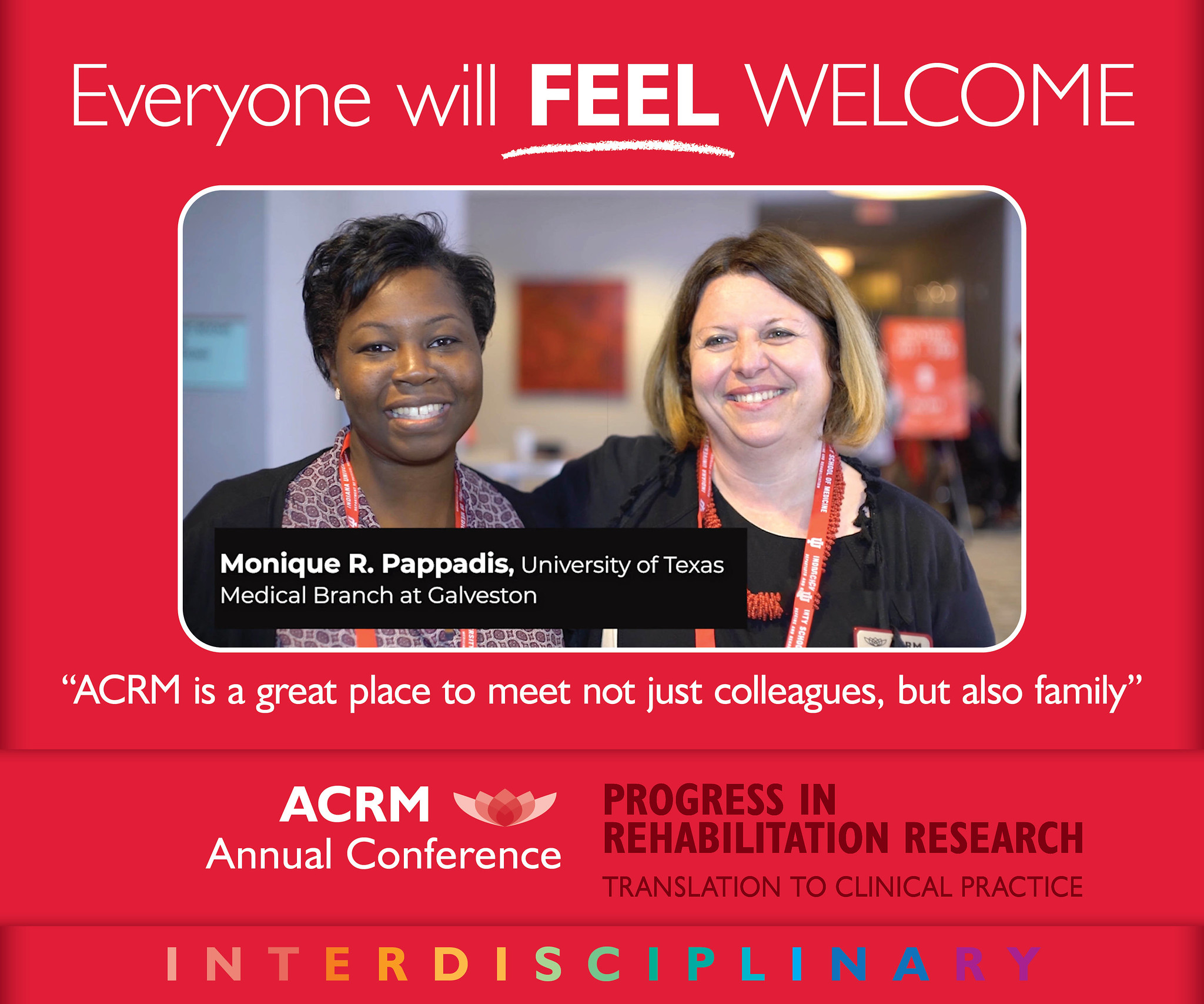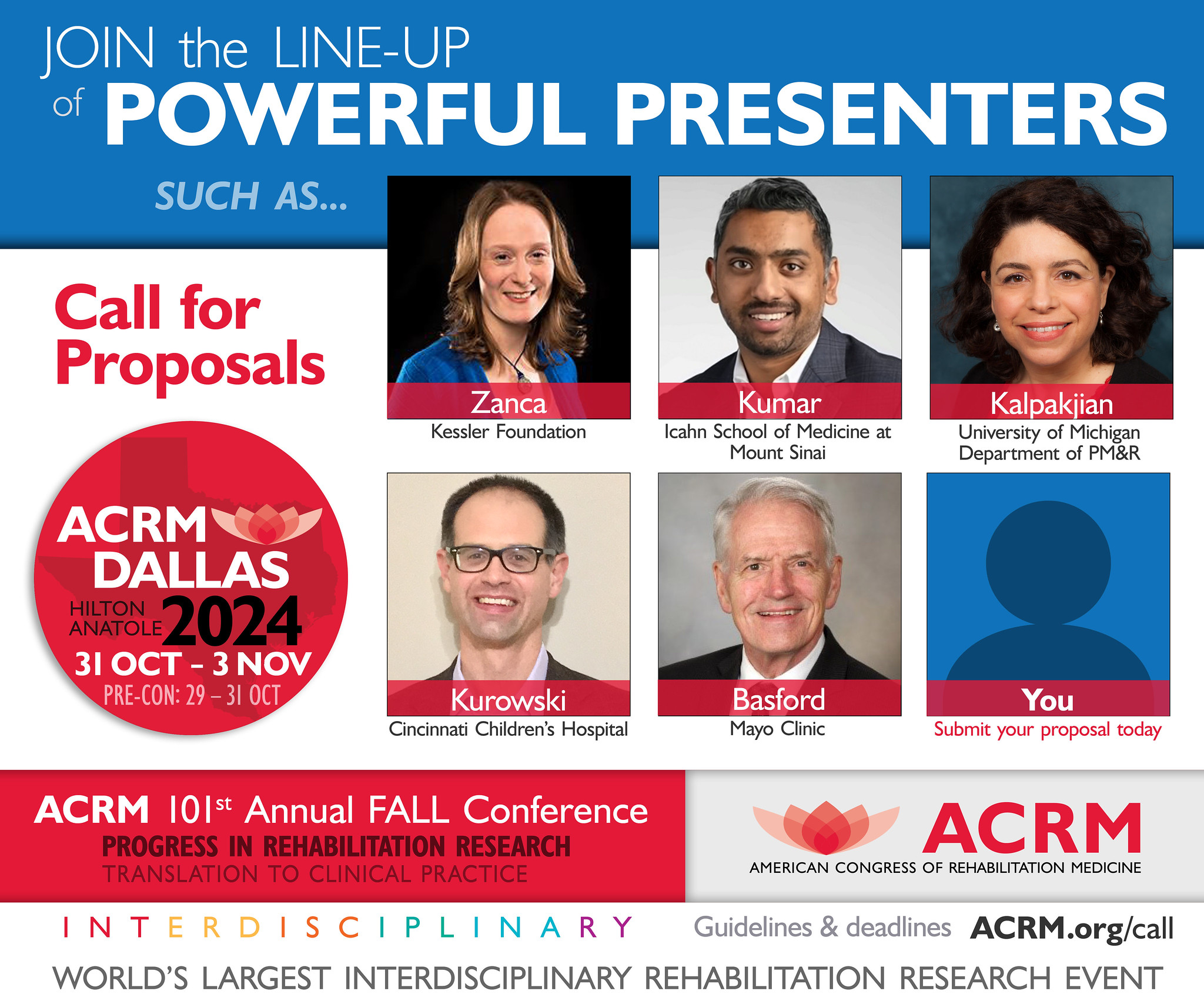Music surrounds us. From the lullabies mothers sing to their babies to your favorite sitcom’s backing track to the pump up music played before a basketball game, music is universally beloved. We’ve been making music since the beginning of culture, and the human brain is hard-wired to differentiate between music and noise.
What effect does music have on the brain? What role does music play in rehabilitation? In today’s blog post, we’ll be sharing a few of the ways that the brain responds to music. If you’re interested in this topic, you may also be interested in the ACRM Arts & Neuroscience networking group or our Neuroplasticity networking group.

Stroke Recovery
Stroke is the fourth leading cause of death in the US, and while music can’t solve a problem this complex and far-reaching, it can certainly help! While rehabilitation research has not yet been able to determine whether music acts directly on an injured brain or whether it simply boosts the morale of the patient, it does improve patients’ ability to perform and control mental operations. Other studies suggest that listening to or playing music may promote the brain’s neuroplasticity, helping it to make new connections between nerve cells. More research in this area of rehabilitation medicine needs to be done, but it is an exciting area of research.
Alzheimer’s Disease
Research suggests that listening to or singing songs can provide a myriad of benefits for people with Alzheimer’s disease or dementia. While a patient may have difficulty accessing memories, musical memories are preserved because many of the key brain areas linked to music are less damaged than others.
If you’d like to use music to help someone with Alzheimer’s, try playing music that your loved one enjoys or is tied to memories of happy times, such as a wedding song or a popular song from their childhood. You can also set the mood with music, such as playing a calmer song during the evening routine or boosting their mood with something more upbeat. If possible, encourage movement, such as clapping, and help them to do so. Pay attention to their response, and if they seem to respond more to some songs than others, play them more often!
Music not only benefits patients, but it can also benefit caregivers and those close to people with Alzheimer’s. Music reduces anxiety and distress for everyone involved, and it can provide a way to connect with someone who has difficulty with other forms of communication.
Movement
If you’re working with someone who has difficulty with balance and gait, music can help train people to walk and perform various movements in time to the song that you’re listening to. Because falling is such a serious risk for older adults, using music to improve coordination can be a lifesaver. Similar programs can be used in rehab for patients with Parkinson’s disease or those recovering from a stroke.
Stress Reduction
You don’t have to be an expert in the field of medicine to know that listening to music can be soothing and stress-reducing. Those in the area of rehabilitation medicine can incorporate music into their practice, from having patients listen to the music of their choice during rehab or in post-operative care.
Illness, surgery, and recovery are incredibly stressful, and music can help reduce that stress. Music can help lower blood pressure and heart rate as well as simply relax your patients as you meet with them or work through the rehab process. Music can even help reduce symptoms of depression, reduce pain, and improve a person’s quality of sleep.
ACRM – American Congress of Rehabilitation Medicine
The mission of our non-profit organization is to improve the lives of disabled people through rehabilitation medicine and research, and that includes utilizing innovative techniques like music therapy into rehabilitation practices. While this list of how music affects the brain is a general overview, there’s always new, innovative research going on within the ACRM community.
We work with hospitals, universities, professional and advocacy organizations, and rehabilitation professionals around the world. We have 3,000+ members from more than 65 countries and produce the ACRM Journal. Learn about the benefits of joining ACRM as well as member dues and how to apply. You can also learn more about the ACRM Conference and register for either in person or online here.











